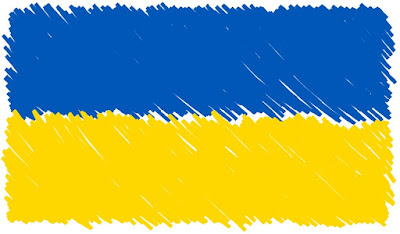This is a short explanation of what is happening in Ukraine, looking at the country's conflict from a neutral perspective. The war in Ukraine originated in a political crisis in 2014 and has sometimes shown signs that it will become very intense and violent.
The pro-Russian government of Viktor Yanukovych was deposed through the Euromaidan street protests in 2014. Following this, pro-Russian elements of the population in the country's east and Crimea rebelled against the new pro-European Union administration.
Russian troops sneaked into Ukraine during the crisis in 2014, taking over Crimea and assisting armed rebellion in the east of Ukraine. Crimea was subsequently declared as part of Russia following a referendum rejected by Western countries, creating an intense standoff that lasts to this day.
False alarms
Fortunately, each time the conflict looked like it would result in a full-scale clash with Russia, the situation quickly calmed down. It happened earlier this year, already. In April, alarm was raised over a Russian build-up in preparation to invade Ukraine. The Russian troops withdrew, and it turned out to be a false alarm.
By November, we began to hear reports of Russia building up troops to invade Ukraine once again. These reports have continued as we entered December and so far there is no report of any withdrawal of troops.
What is really happening in Ukraine is that the country wishes to restore complete control over its territory. It states this as its goal, referring to the Russian-claimed Crimean Peninsula as temporarily occupied and claiming it will retake the Peninsula by force in the future, although this is just grandstanding.
Russia is against the Ukrainian government going on the offensive in the eastern zones and most likely has objectives limited to protecting that area, deriving popular support due to the high Russian-speaking population there. Russia. whether cynical or sincere about it, most likely assesses that an eventual Ukrainian offensive will cause a lot of civilian deaths. If a certain threshold is reached, it can launch its own large-scale attack on Ukrainian troops and present it as a limited response aiming to protect civilians.
Some may see the US as being behind the escalation in Ukraine, but this is unlikely (barring their involvement in the original events of 2014). The US is heavily focused on China. Being distracted by a major conflict in Europe would put an end to the attempted pivot to Asia. Lifting of targeted sanctions to allow US Under Secretary of State for Political Affairs Victoria Nuland to visit Moscow may represent one of the attempts to somewhat mend ties as the US tries to form alliances against China.
The most likely outcome is that the US will convince Ukraine to stand down, following which the Russians will also stand down. The same happened back in April.
Russia's secret plans for Ukraine
A Russian attack could begin with vague objectives in eastern Ukraine but could secretly be entirely open-ended, allowing their military to accomplish anything it deems possible, including the total occupation of Ukraine. Although this could not be a Russian goal in 2014, it now may be one of their goals.
NATO suggestions about moving nuclear weapons into Europe, potentially to the Russian border, alarmed Moscow. They most likely demand a very heavy response from the Russian side and there is already the offer by Belarus to host Russian nukes in response. The Russian military may have demanded access to Ukrainian territory so nuclear weapons can be stationed there in response to NATO.
Although NATO nuclear deployments were denied by NATO Secretary General Jens Stoltenberg, it could be too late as the perception now exists that NATO wants nukes close to Russia. NATO failed to keep its plans secret: it wants nuclear strike capability close enough to Moscow to deny Russia the chance to retaliate. If Russia is going to respond to this, Ukraine has no hope.
Ukraine should not attempt to restore its control over the eastern parts of the country or Crimea. It especially should not offer to host US missile defences or nuclear weapons. Such actions would trigger Russian intervention and Russia would be able to enact its own plans for Ukraine.
Russia may choose to enact its plans anyway, feeling compelled to respond to the NATO nuclear weapons that could otherwise be positioned at its border. The decision may have already been made to secure launch sites in Ukraine at all costs.
During the course of any Russian intervention, Russian troops could get very close to Ukraine's capital city, Kiev. They could suddenly decide to decapitate the Ukrainian government in such a conflict, even if it was not their original plan.
The reality is that Ukraine is much weaker than Russia and cannot count on NATO support. The best thing for both sides to do would be to maintain the status quo, not start any offensive, and wait to see if changes of government in Kiev and Moscow in future result in better relations.


